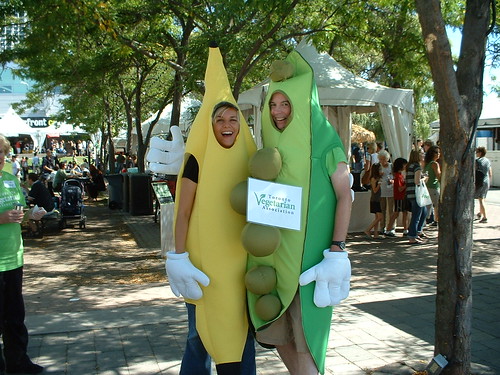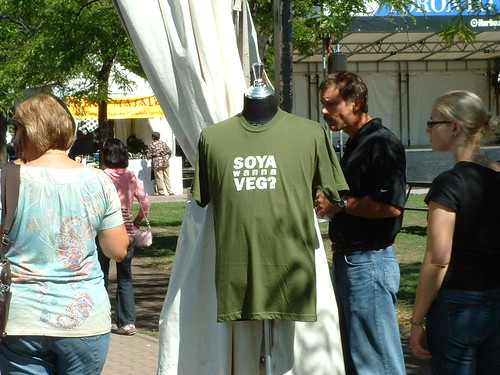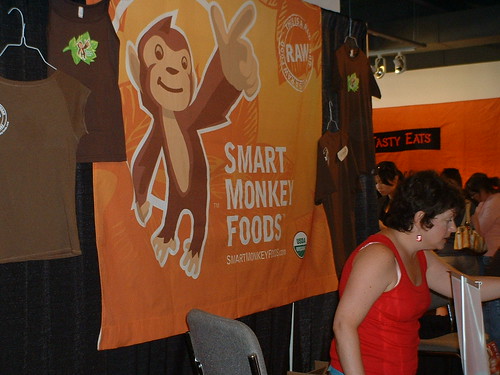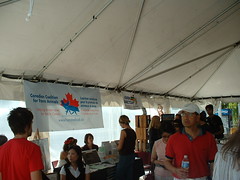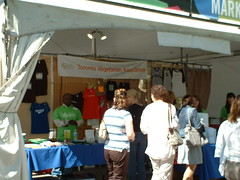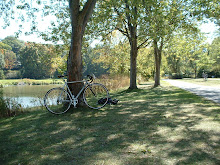So most of you probably didn't know that in my professional life (i.e. when I'm not biking, reading, writing, blogging, or watching LOST and the OFFICE) I'm an academic librarian.
This means that I'm pretty happy doing research and scanning lists of journal articles and trying to see if they're any good or not for the research I'm doing. But - I really really hate science lingo. I mean for God's sake - what do these things mean?
 23. Characterization of flax fiber reinforced soy protein resin based green composites modified with nano-clay particles
23. Characterization of flax fiber reinforced soy protein resin based green composites modified with nano-clay particles in Composites Science and Technology (August 2007)
24. Protective Effect of Soy Isoflavones and Activity Levels of Plasma Paraoxonase and Arylesterase in the Experimental Nonalcoholic Steatohepatitis Model in Digestive Diseases and Sciences 52.8 (August 2007)
25. Analysis of ethyl carbamate in Korean soy sauce using high-performance liquid chromatography with fluorescence detection or tandem mass spectrometry and gas chromatography with mass spectrometry. in Food Control (August 2007)
Stupid scienticians.
Anyway, I've seen some fairly
weird stories about soy recently and have been trying to do what a good librarian does - i.e. find out what the experts are saying about soy (through academic journals) rather than what any idiot with a blog is saying about soy on the internet.
So far I can't find anything all that conclusive about soy being good or bad, though I think that the needle points a bit more to the good side than the bad side. There's no proof, for example, that soy estrogens negatively effect testosterone in men, and there is some proof that soy reduces prostate cancer in men.
Some more readable things I found in the news databases are the following:
The scoop on soy: Breathe easy. Tofu and other products made from the humble soybean are far from harmful 21 March 2007
The Calgary HeraldSoy has been touted as a miracle food. But it's also been dragged through the nutritional mud as an over-hyped product that does more harm than good.
"There's so much confusion about soy," says Mark Messina, who holds a PhD in nutrition and is president of Port Townsend, Wash.-based Nutrition Matters, a consulting company.
He has studied the health effects of soy for almost 20 years and says there is so much information floating around that it's no wonder confusion reigns. As far as he's concerned, soy is just fine.
"For the most part, the evidence shows that soy is totally safe."
"Soy foods are low in saturated fat, they contain a lot of dietary fibre and they're an excellent source of protein," says Carole Dobson, a registered dietitian with Calgary-based Health Stand Nutrition Consulting.
So what's the worry? The controversy stems from a bioactive compound found in soybeans, called isoflavones. Some people are concerned about isoflavones because they're a hormone-like compound.
"They have some estrogen-like effects," says Messina. "But they are much different than the hormone estrogen and probably are very selective on what tissues they affect."
"There's just absolutely no effect of soy on testosterone levels," he says. "The few studies that have looked at semen quality in men have not found any adverse effects, as well."
[Concerning soy causing] accelerated puberty in girls, reproductive problems and increased difficulty getting pregnant - there has been no conclusive scientific research to prove this.
"There's no actual study that links soy intake in men or women with specific negative health results," says Dobson.
If anything, eating soy may help slow the onset of puberty because it is low in saturated fat.
Are Canadians Jumping For Soy? 1 May 2007
Canada NewsWireNew Study Shows Most Canadians in the Dark on Soy Health Benefits
Experts have been buzzing about super-foods and the array of health benefits they offer, but are consumers listening? A recent survey showed 62 per cent of Canadians had never consumed a soy beverage. Of those respondents, over half (57 per cent) are in the dark when it comes to the health and nutritional benefits of soy - one of the most hotly touted super-foods. Additionally, 16 per cent of respondents indicated they think soy tastes bad.
Yet, of the one-third of Canadian households that have tried soy beverages and the 15 per cent that drink it on a regular basis, 27 per cent drink soy beverages because they enjoy the taste, while more than half (52 per cent) indicated they consume soy beverages for their health benefits.
"The latest edition of Canada's Food Guide recommends soy beverages as part of a healthy diet. Not only does soy help lower cholesterol, but it could also aid in the prevention of heart disease, osteoporosis and certain cancers," said Diana Steele, a registered dietitian who recommends soy beverages as a healthy and nutritious option. "But it's obvious from this survey many Canadians don't know exactly why soy is so good for them or why it would be on the list of super-foods."
Despite experts touting soy's health and nutrition benefits there are also a number of myths currently in circulation that might be adding to consumer confusion. "Once they can get accurate information on soy, such as from a registered dietitian, and myths are dispelled, Canadians will be able to make informed decisions about soy beverages," added Steele.
The Myths
---------
1. Soy has no effect on cancer. Actually, several recent scientific
studies have shown regular intake of soy foods and beverages could
help prevent breast, prostate, and colon cancer(1). The cancer
protective effects from soy are due to the group of natural plant
elements known as isoflavones.
2. Soy is not an adequate source of protein. Only one per cent of non-soy
beverage drinkers surveyed know soy is a good source of protein. In
fact, compared to other legumes, soy offers the best quality of
protein. Soy protein contains enough of all the essential amino acids,
such as methionine, to meet a person's nutritional needs when consumed
at recommended levels.
3. Soy has no impact on heart health. Soy protein plays an important role
in a heart healthy diet. Rich in polyunsaturated fats and low in
saturated fats, some soy beverages also include dietary fibre and key
vitamins and minerals, such as calcium (if enriched) and potassium.
The consumption of 25 grams of soy protein a day, in conjunction with
an otherwise healthy diet, lowers plasma cholesterol, which has been
shown to reduce the risk of developing cardiovascular disease(2).
4. Soy is high in Estrogen and can reduce fertility in men. Some people
have speculated that phytoestrogens - naturally found in soy foods -
can reduce fertility in men. However, there is no evidence that
fertility is affected when men eat or drink soy as part of their
regular diet.
Anyway - it looks like soy is fine, despite the weird stories your friends might email to you. And even if it turns out that we can't eat soy, at least we can wear
soy underwear.





























